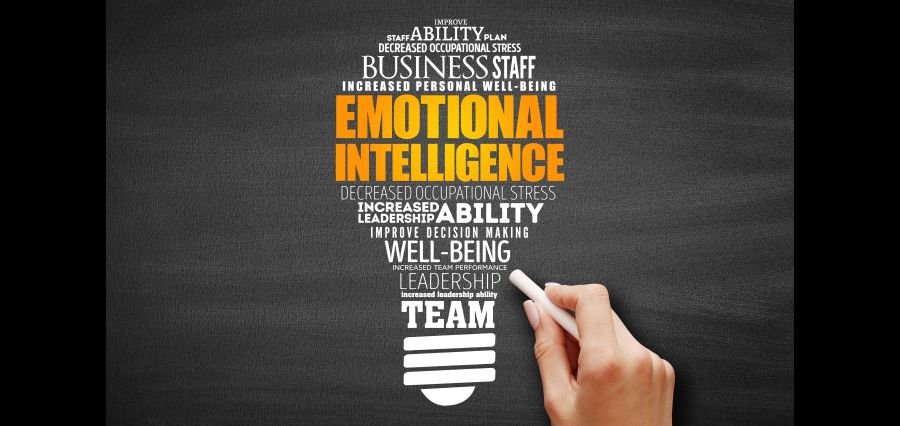Traditional characteristics of leadership have described it synonymously as strategic vision, decisiveness, and innovation. However, with changing workplace dynamics, emotional intelligence has today emerged as one of the most essential elements in leadership. This is because knowing and controlling as well as orchestrating emotions regarding oneself and others has become particularly critical in shaping teams, countering obstacles, and igniting teams.
Understanding Emotional Intelligence
It is the ability to recognize and regulate emotions in oneself and in others-that is, emotional intelligence. Psychologist Daniel Goleman, who popularized the concept of EI, described five components as the foundation of EI: self-awareness, self-regulation, motivation, empathy, and social skills. Leaders with high EI are great at understanding their emotions, composed under stress, empathizing with team members, and building strong relationships.
The science behind EI is that it has to do with how our brains work. That is, emotional intelligence has to do with the interaction between the limbic system that carries the emotions and the prefrontal cortex rich with rational thinking capacities. In other words, through EI practice, leaders become attuned as to how best balance the neural systems, which would then give way to more thoughtful responses to pressure situations and less impulsive behavior.
Self-Awareness Role in Leadership
Self-awareness forms the grounding point of emotional intelligence and able leadership; it is to recognize yourself: which would better incorporate emotions, triggers, strengths, and weaknesses. Leaders, who are self-aware, are better at making calculated decisions and can be more authentic, thus building their followers’ trust.
Evidence now suggests that self-awareness also boosts adaptability: a leader can change the way they lead by being responsive to the needs of the teams and the organization. Mindfulness practices enable the enhancement of self-awareness, therefore enhanced emotional regulation and decision-making ability.
Empathy: The Nerve Centre of Emotional Intelligence
One of the core components of EI in the leader is the ability to understand and share the feelings of others: empathy. Empathetic leaders create a place of work where people feel valued, understood, and supported. This psychological safety motivates open communication, innovation, and collaboration.
Empathy is particularly crucial in diverse workplaces, where leaders must navigate cultural and generational differences. Listening actively and considering various perspectives, leaders can bridge gaps and foster inclusivity, enhancing team cohesion and productivity.
Emotional Regulation and Resilience
Self-regulation, the other pillar of EI, refers to the management of emotions. Effective self-regulation of emotions, especially under stressful conditions, helps leaders become resilient, composed, and capable of navigating crises with clarity.
Interpersonal dynamics can be managed in the regulation of emotion. Calm and composed leaders are able to reduce conflicts, boost morale, and set good examples to teams. This is very important especially in today’s fast-paced high-pressure workplaces.
An emotionally intelligent leader is characterized by high social skills. Effective communication, conflict resolution, and influencing and inspiring others; all these fall under the umbrella of effective social skills. A leadership with high EI excels at relationship building and relationship maintenance. This is a key part of working together and obtaining organizational objectives.
This will enable leaders to have their teams fit the organizational vision, give them a sense of purpose, and get them to work at their best levels. In return, it allows leaders to overcome the intricacies of stakeholder relationships, hence obtaining alignment and support for strategic initiatives.
Relationship between EI and Leadership Effectiveness
Studies have shown that EI is associated with effective leadership. In the Leadership & Organization Development Journal, one study revealed that leaders with high EI manage stress, change, and inspire their team members.
Organizations led by emotionally intelligent leaders are likely to experience higher levels of engagement, retention, and performance in the employees. A leader makes that possible through developing a trust- and respect-based culture within which an employee has empowerment to deliver at their best.
Developing Emotional Intelligence
The good news is that emotional intelligence can be developed with intentional effort and practice. The ability to enhance self-awareness comes from reflection through journaling, feedback sessions, and mindfulness. One can cultivate empathy by being actively listening and looking at other people’s perspectives.
Stress management could be developed through the practice of deep breathing and cognitive reframing. Communication skills can be developed through training on communication, workshops on conflict resolution, and practice in the context of the team.
Today, leadership development programs include EI training more than ever because it plays a crucial role in driving organizational success. This investment in EI will help leaders become more effective and leave a lasting impression on their teams and organizations.
Conclusion
Emotional intelligence is not a soft skill, nor an innocent ally to leaders in their ability to navigate the complexities of modern organizations. Rather, it’s a strategic asset that enables leaders to work on trust, collaboration, stress management, and performance.
As the workplace changes, EI will become increasingly integral to leadership. It is only through the recognition and development of emotional intelligence that leaders will find the means of unlocking their full potential, inspiring teams, and building the future of work. The approach to leadership put forward here shows how emotions power professional and organizational success.





